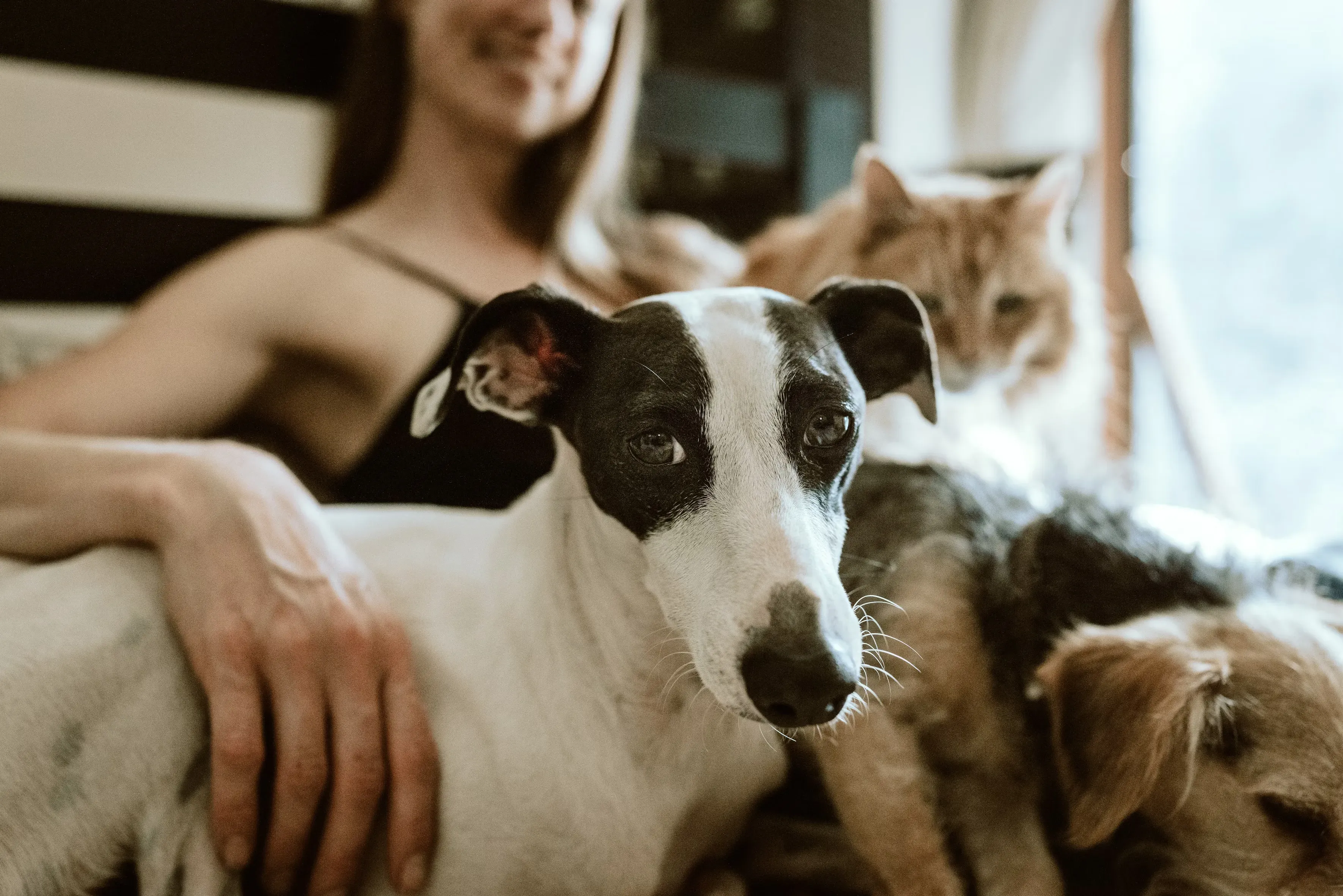The Bond
Dogs and cats make the world a better place. Especially your world. We believe that the bond you create with them can be transformational.
We know that animals are capable of bringing out the best in us. They give us love, peace, and joy. They even have the power to improve our well-being.
With them, we can improve our physical health and become more active. They bring out our more responsible, respectful and sociable side.
They also support us emotionally. They are always there, without judging us, whatever happens. They teach us to live in the present.
This special bond with animals is not exclusive to one culture or region. It is a universal phenomenon that has been shared by different countries, eras and traditions for thousands of years.
We form a bond with them that is based on love, respect and an understanding for their needs. They are another member of the family, who needs our love and protection every day, because they are our responsibility.
We want to promote, protect and celebrate this relationship that adds so many positives to our lives. This is a relationship that makes us happier and gives us the opportunity to be better people.
Because we believe in a society with animals. A society that understands this bond and values its role is a more agreeable society, a better society. This is the driving force and reason for our Foundation’s existence.
What science says about a healthy bond
physical benefits
We release oxytocin and dopamine
Levels of cortisol, the stress hormone, are reduced
Heart rate and blood pressure are reduced
The immune system is improved
emotional benefits
They provide company
They help us deal with difficult times
They motivate us and give us a purpose
We tell them things we can’t share with anyone else
Our studies say that no two relationships are the same, but there are two major ways in which we relate to a dog or a cat: emotional and pragmatic.
Emotional bond
This is characterised by a relationship where the emotional bond with the animal is very intense. For these people, their dog is a very significant source of emotional support, especially in difficult situations.
Pragmatic bond
In this relationship, the bond based on love and support is not perceived in such a strong way. Living with an animal brings benefits, but the emotional dimension is not so intense.
How do the emotional and the pragmatic differ?
70% of people have an emotional bond.
30% of people have a pragmatic bond.
88%
They say that their Dog/Cat is always there when they need it
47%
84%
They say that their Dog/Cat helps them deal with difficult times
41%
Interesting facts about the bond and its beginning
Programmes: this is how we work on the bond
Research, studies and analysis on the bond
Research is one of the pillars of our Foundation.
In 2012, we launched the Animals and Health Research Group at the Universitat Autónoma de Barcelona, with the support of the Parque de Salud Mar de Barcelona, to research the benefits of living with companion animals to people’s health and quality of life.
We also launched the study conducted in Spain and France about the bond between people, dogs and cats.
Communications and awareness-raising campaigns
Raising awareness is the first step towards a better informed and integrated society.
That’s why we want our messages to reach as many people as possible.
Our campaigns are focused on providing information and raising awareness about the transformative power of the human-animal bond, which can change both their lives and ours.
Animal-assisted therapy
In 1991, we introduced Animal-Assisted Therapy in Spain, and since then the lives of nearly 100,000 adults and children have improved thanks to our programmes with therapy dogs and the team they work with.
Prisons, retirement homes, schools, hospitals, children’s homes and mental health centres are some of the areas in which the transformative power of our bond with animals has proved itself.
Want to see how our therapy dogs work?
Stories like yours

Share the story of your bond with an animal
Sharing your story inspires others, helps us better understand the bond people have with their animals and it’s a way of saying thank you to your dog or cat.
Upload a photo of your dog or cat if you’d like, so we can put a face, snout, and whiskers to them.
AFFINITY PETCARE, S.A.U. is responsible for processing your personal data. The data we will process about you will be those you provide through this form for the handling and management of your request. Additionally, if you decide to upload an image, you consent to the transfer of rights over the image you provide us and the subsequent processing derived from it. Finally, by participating, you guarantee that you are the person appearing in the photograph and that you are over 18 years old.
For more information and to learn how to exercise your rights of access, rectification, deletion, restriction, portability, and opposition, please see our Privacy Policy.